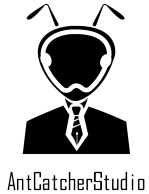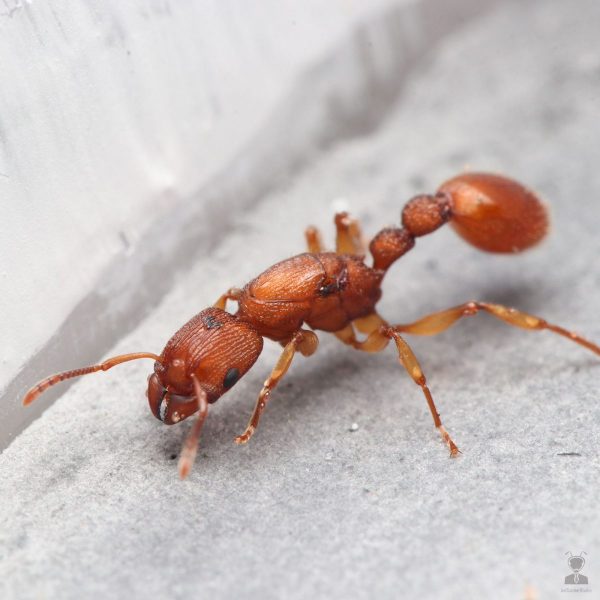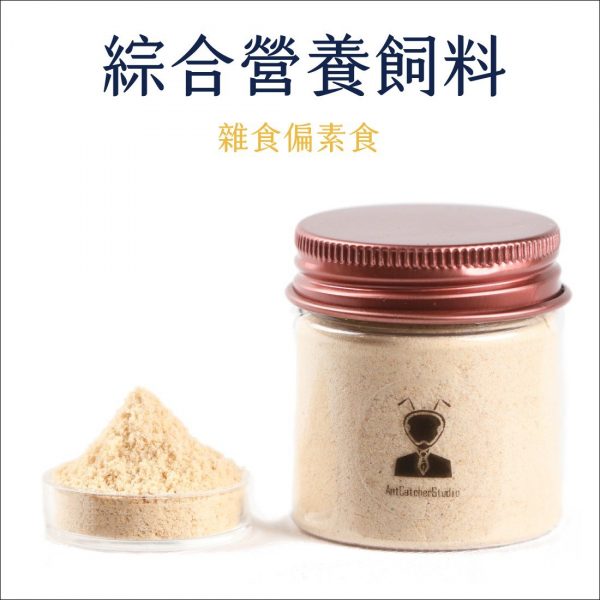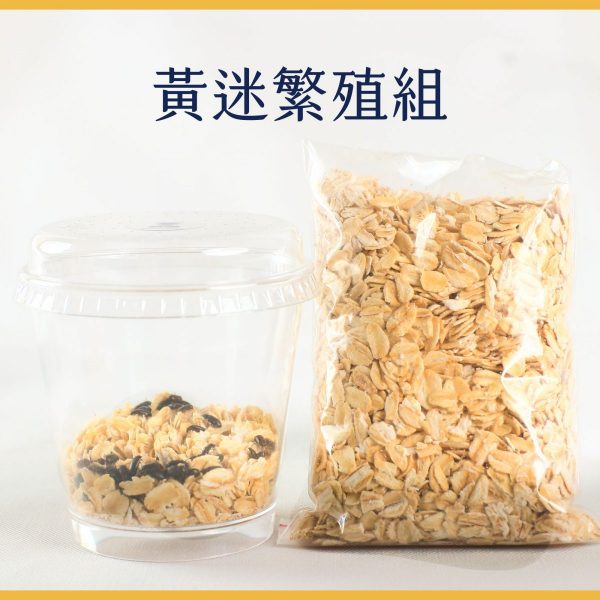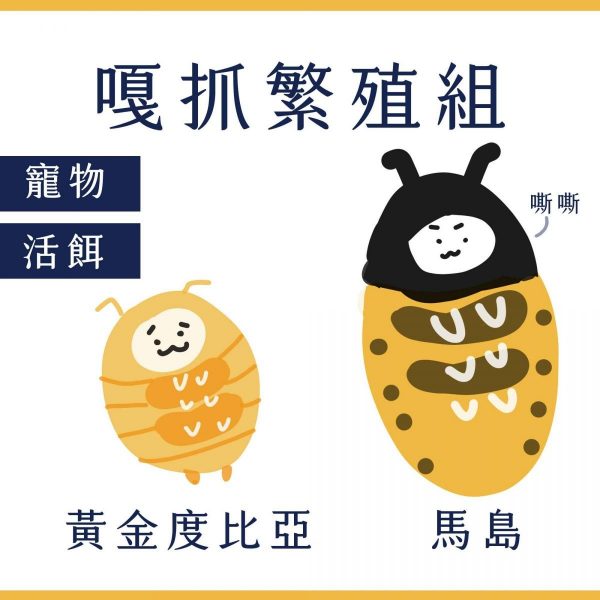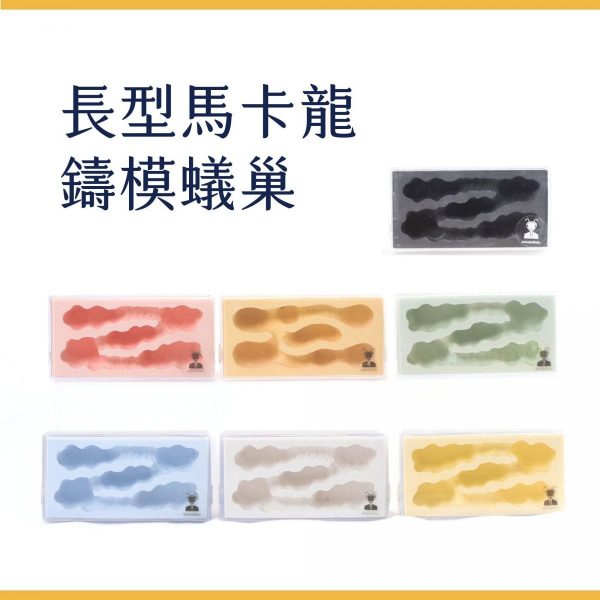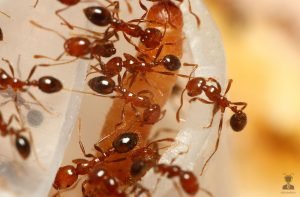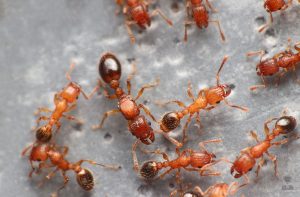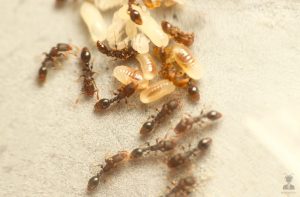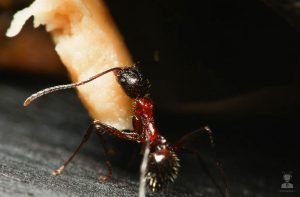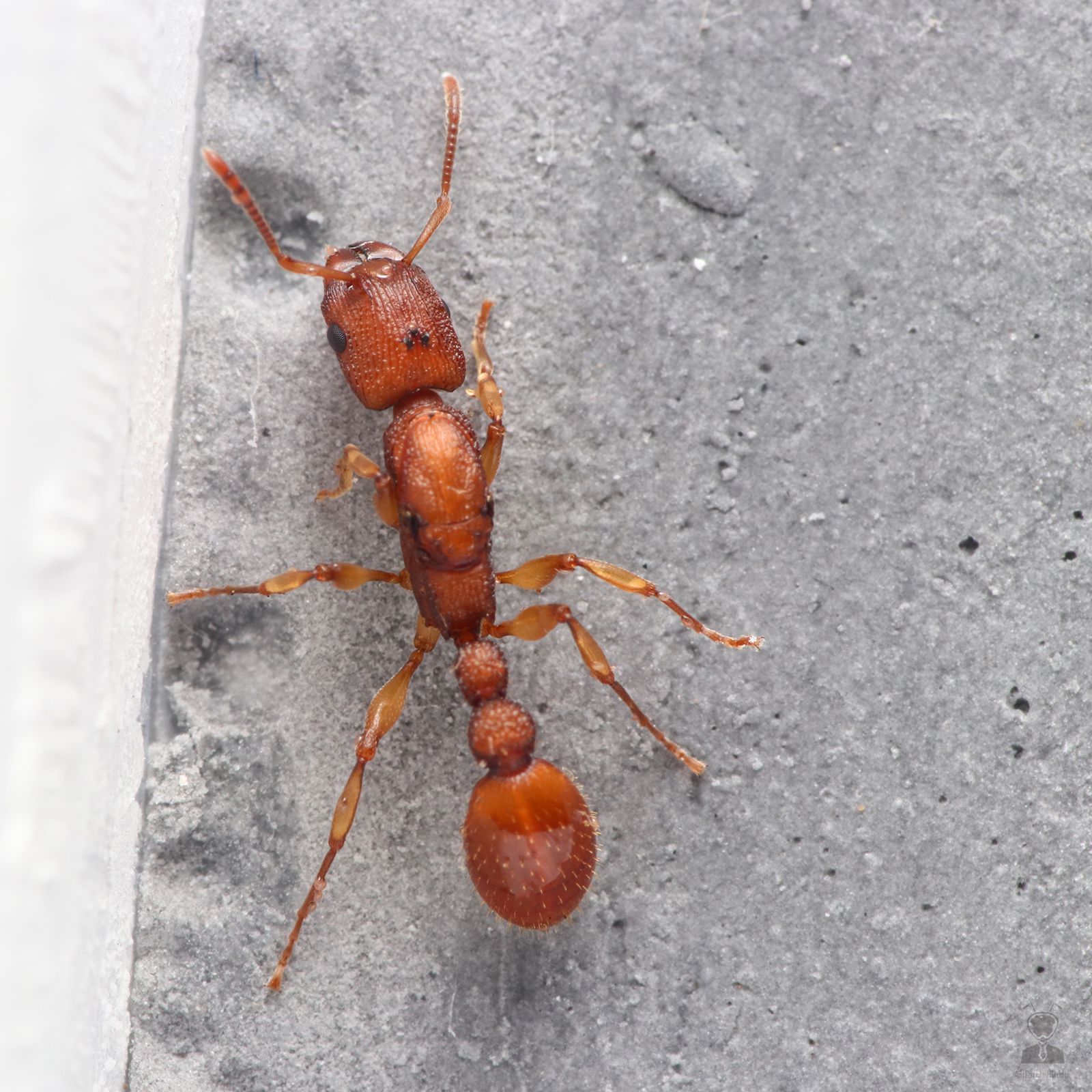
文章目錄
簡介
錫蘭細腰家蟻是一種中型蟻,蟻后與工蟻外型相似;但蟻后體型明顯較大,蟻巢內幼蟲數量明顯較其他蟻種多,因此食量巨大,需頻繁餵食,屬於容易飼養的蟻種。
蟻種資訊
錫蘭細腰家蟻學名:Prenolepis ceylonica |
|||
|---|---|---|---|
|
體色紅褐色,頭部具刻紋,腹部具稀疏立毛,具螫針但不明顯,沒有大型工蟻,工蟻會合作獵食。
錫蘭細腰家蟻為單蟻后型的螞蟻,成熟蟻巢由1隻蟻后及約1000~3000隻的職蟻組成。 錫蘭細腰家蟻屬雜食性的螞蟻,在野外會充分利用環境資源;以蜜露、蠕蟲、蟑螂等小型昆蟲為食,全台均有分布,築巢於倒木、樹洞、樹皮中,無明顯日夜行性,不容易在野外發現其蹤跡。
在以往飼養困難(約2019年前),隨著螞蟻飼養用品的推陳出新,現如今飼養非常容易,以專用飼料為主食;亦可給予糖水、蟑螂,食量巨大(因為幼蟲多),需頻繁餵食才可確保幼蟲數量持續增加,使用石膏蟻巢飼養。蟻巢須保持較高濕度,使用大顎與螫針狩獵,性格兇猛。
|
|||
飼養資訊 |
|||
飼養容易度 |
容易 | ||
溫濕度控制 |
不超過30度,需稍高濕度 | ||
生產速度 |
極為快速 |
個性 |
狩獵兇猛 |
生物學資訊 |
|||
制度 |
單后制 |
食性 |
雜食性 |
巢型 |
倒木、腐木、樹皮 |
特有種 |
否 |
體長 |
蟻后 |
約9~10mm | |
兵蟻 |
無兵蟻 | ||
工蟻 |
約4~6mm | ||
清晰照片
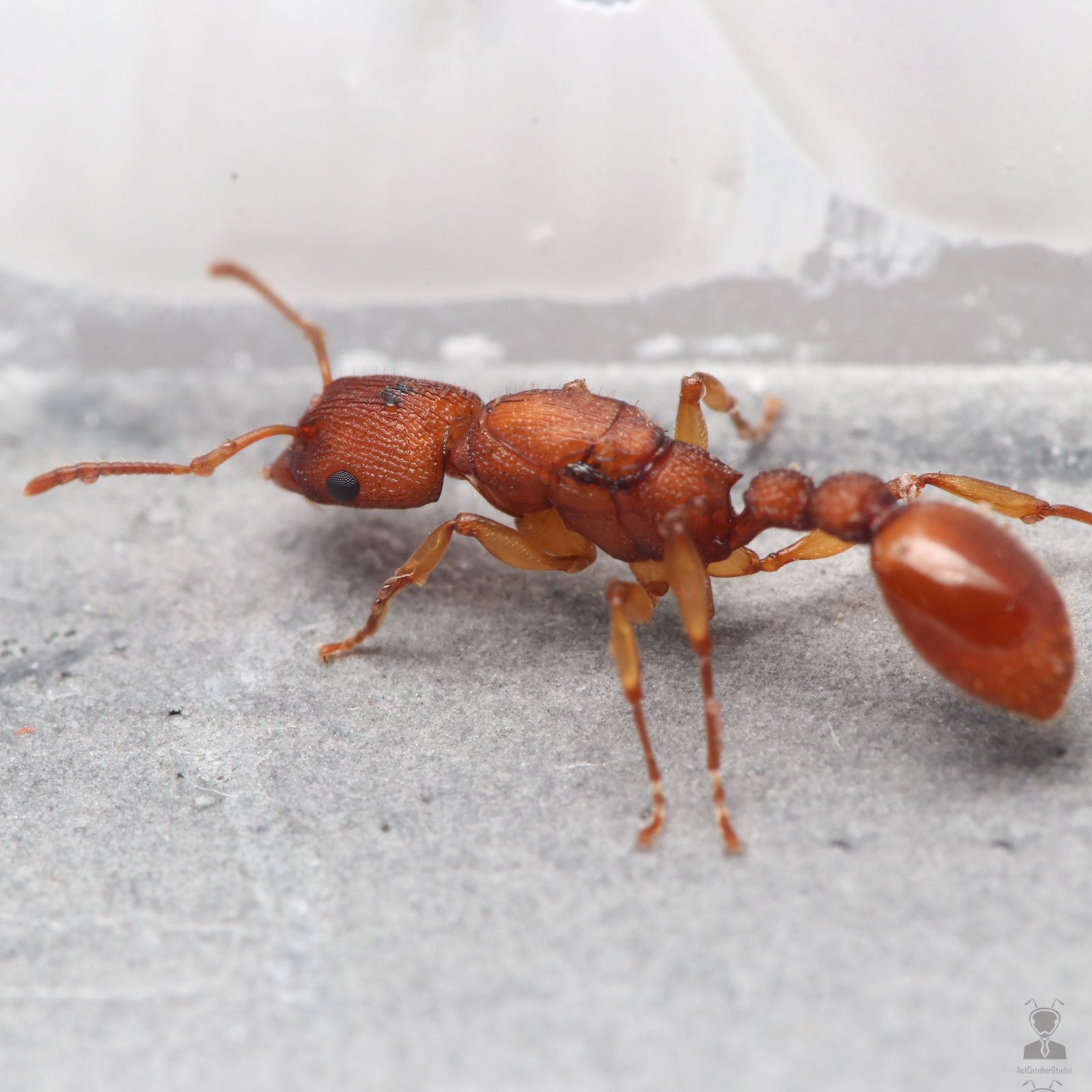
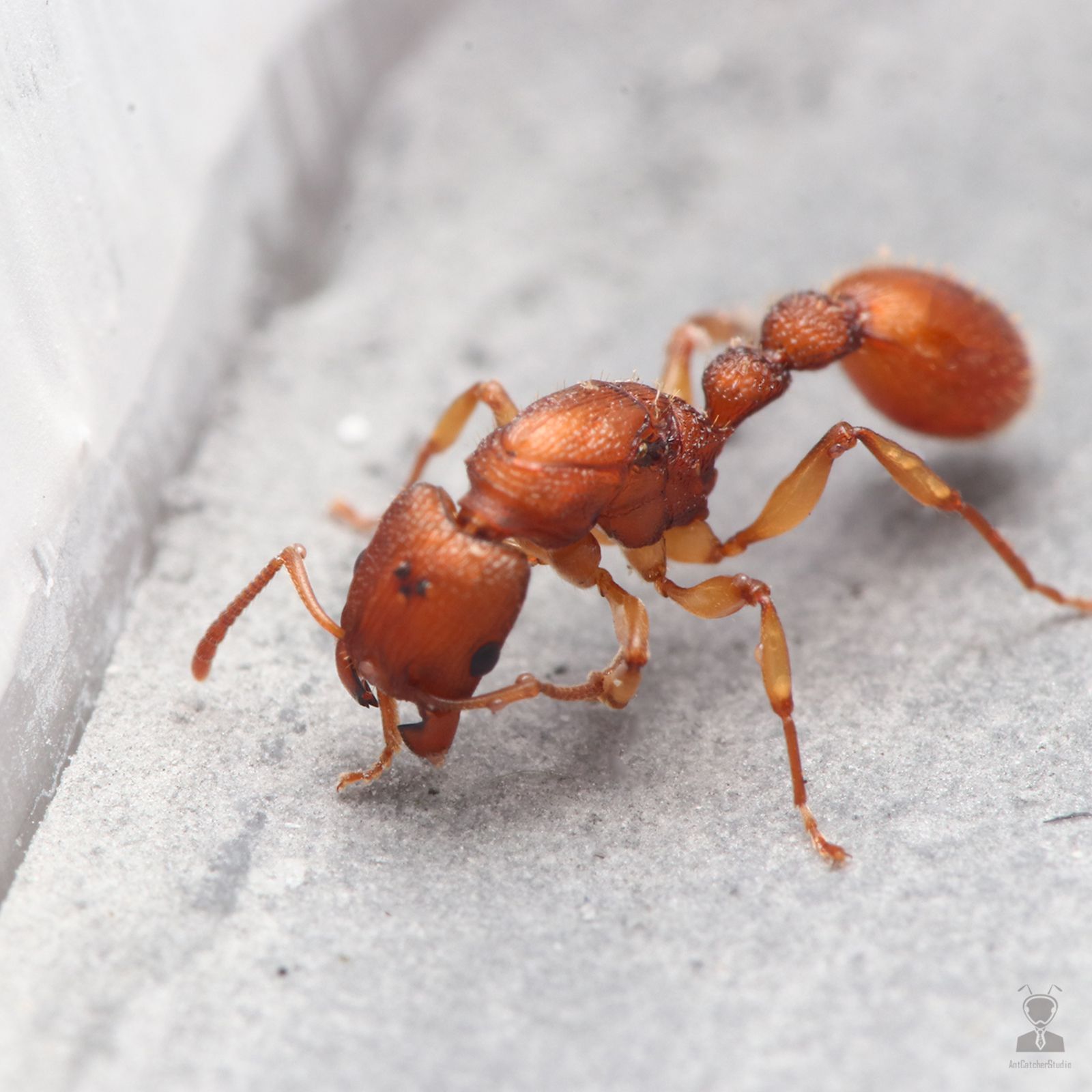
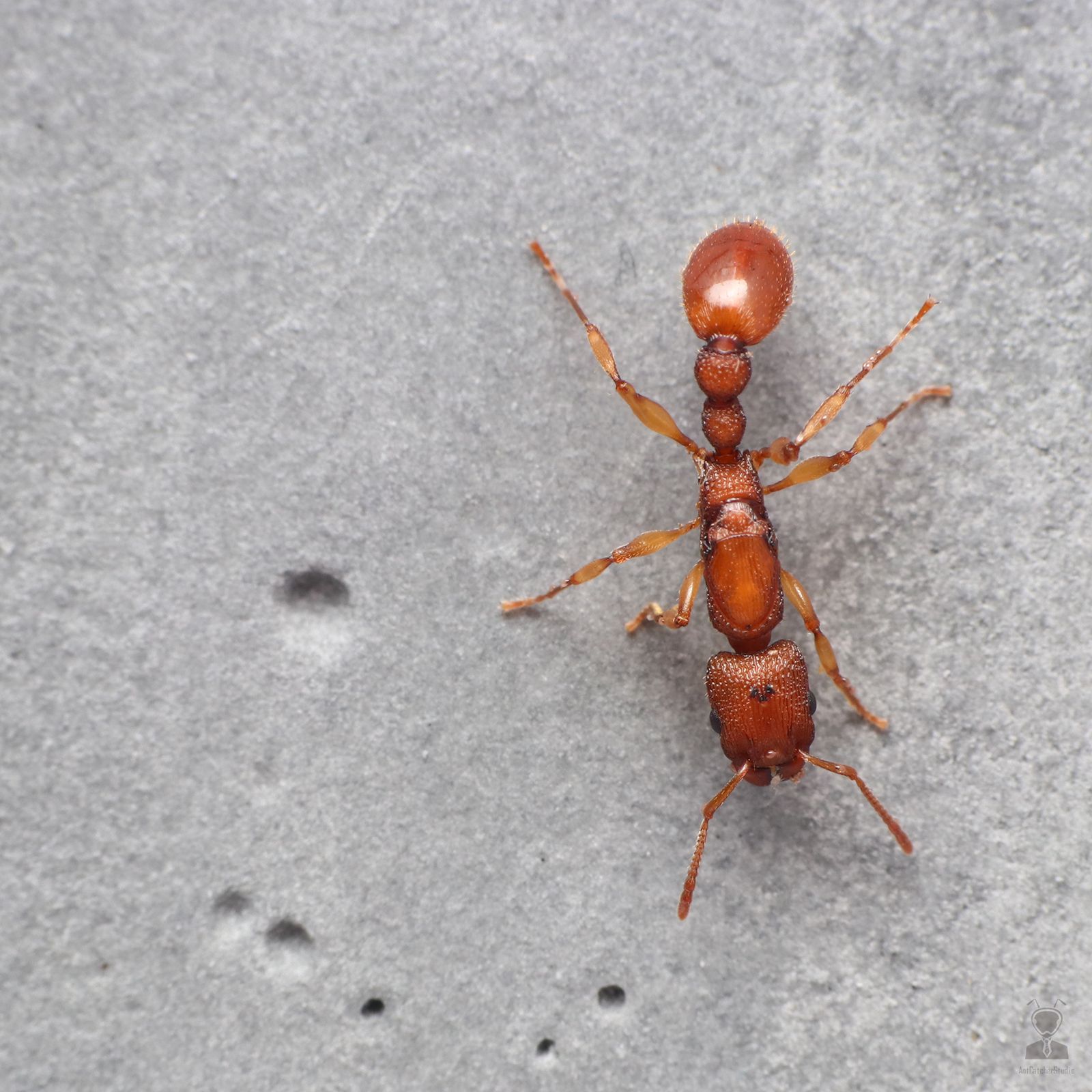
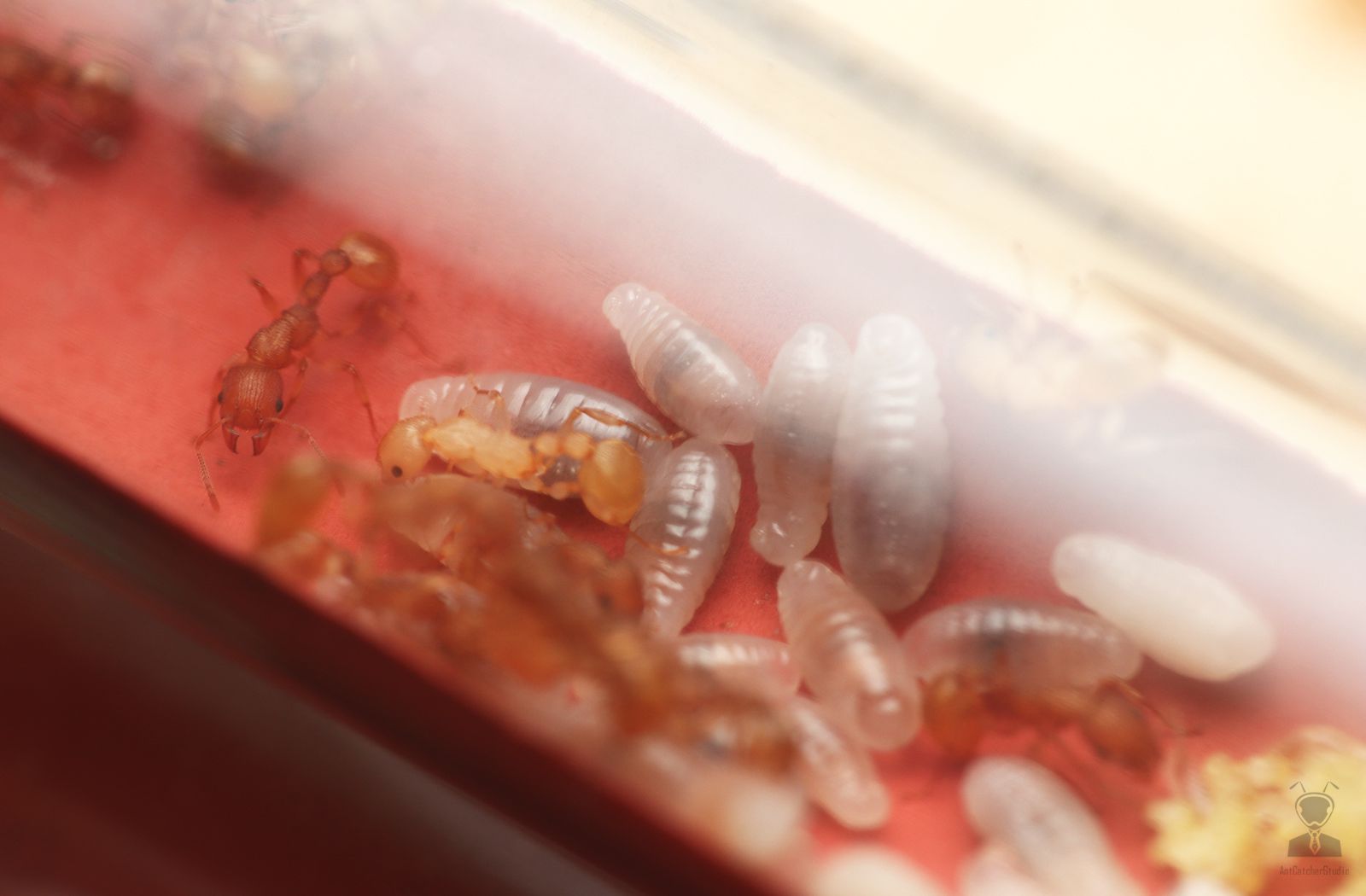
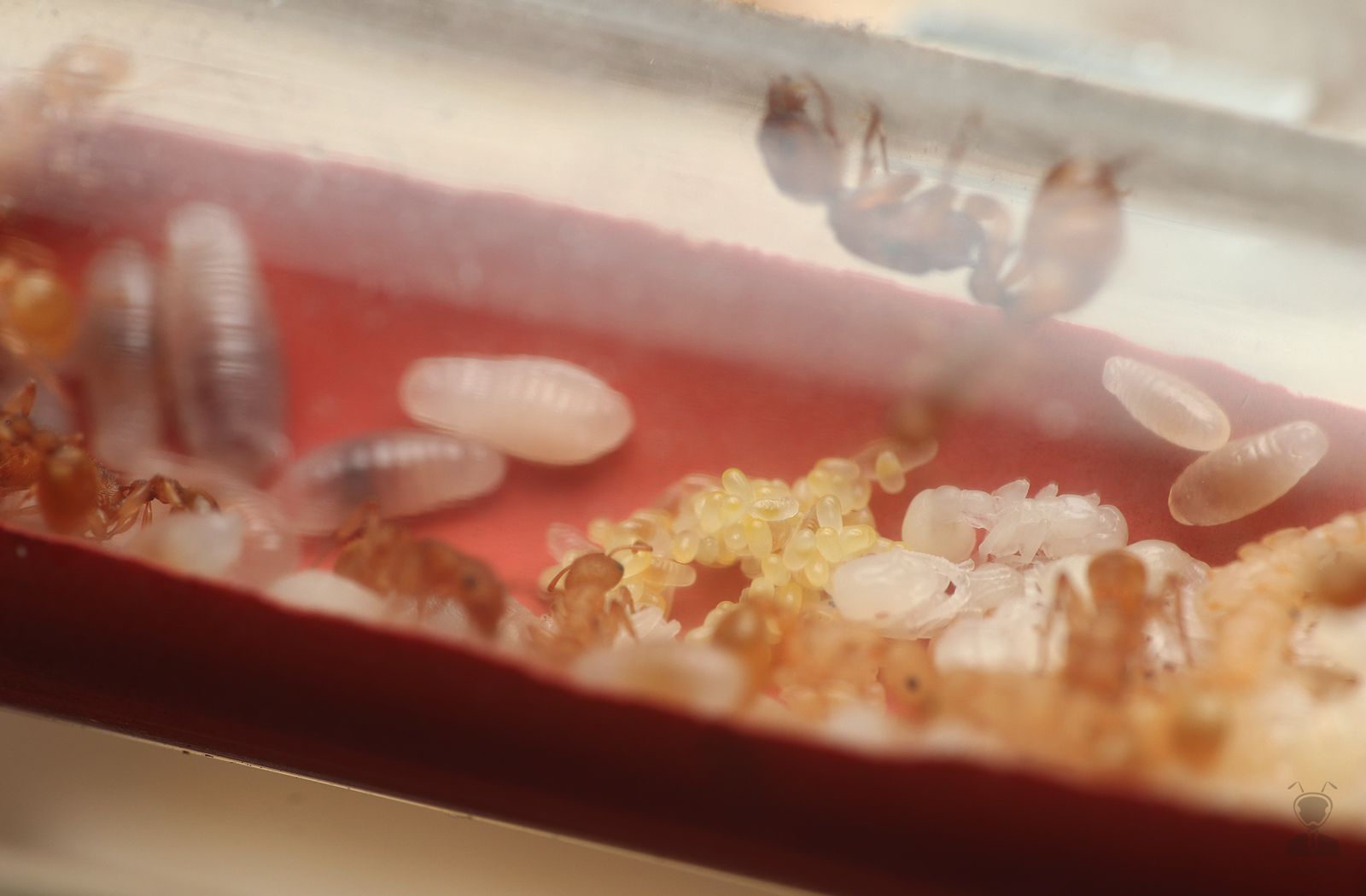
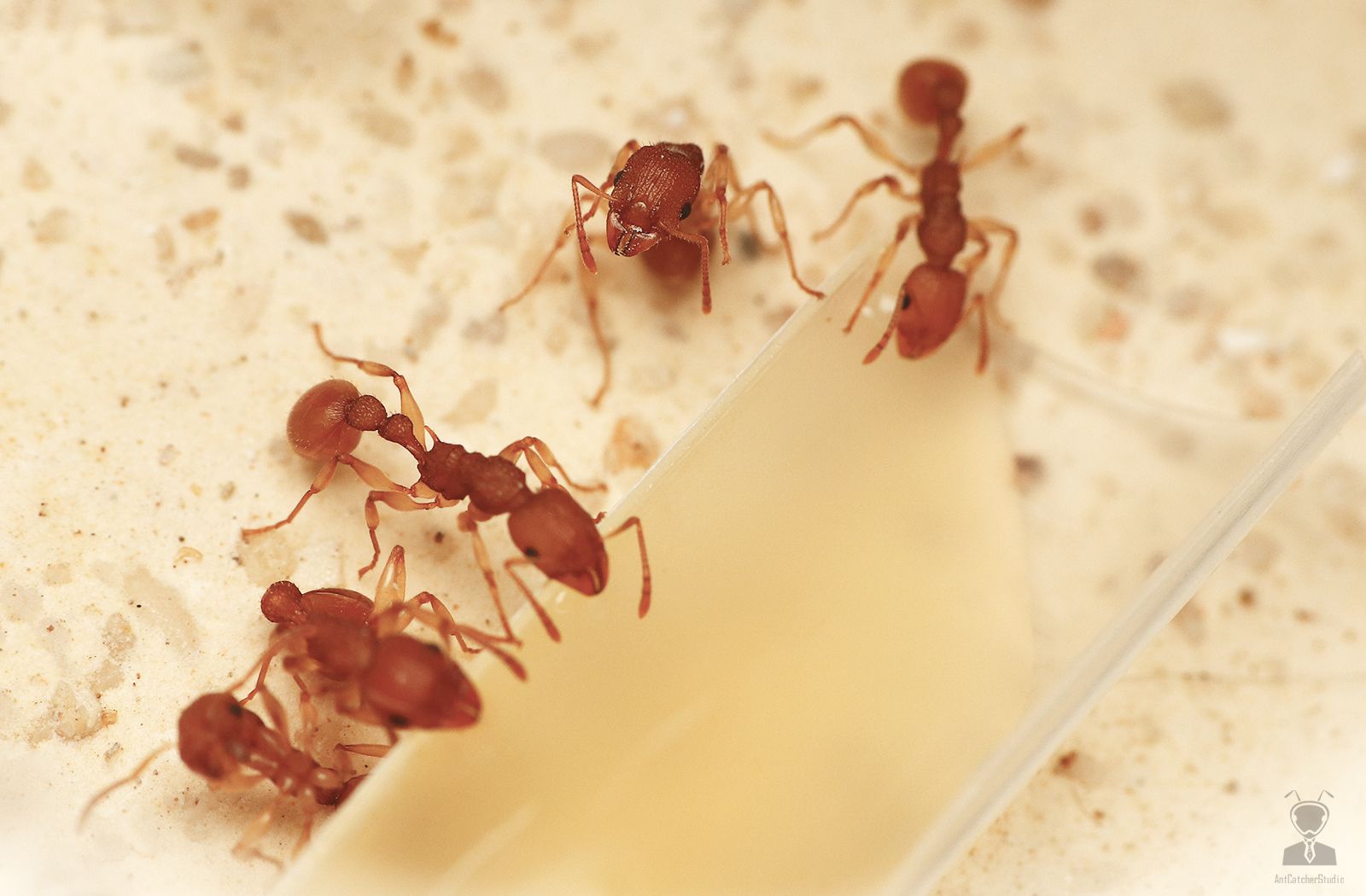
詳細飼養方式
如何飼養錫蘭細腰家蟻?
花費至少 365 days
新后,尚未產卵~產卵
使用堵水試管培養,溫度維持25~30度,放置黑暗環境,期間每7日餵食一次糖水。
新后,有幼蟲
確認幼蟲出現後,開始給予專用飼料或黃色迷你麵包蟲(S號)或蟑螂腿,凡食物被吃完就立即補充投餵。
新后,出1~20隻工蟻
首批工蟻出生後,開始增加餵食頻率,依照群落發展狀況調整,從1週2次~1週5次皆可,儘量不要讓蟻后產卵頻率中斷,餵食份量適量,切勿給太多,以免食物發臭,少量多餐為主。
小群落,20~100隻工蟻
隨著人口增加,試管空間逐漸不足,此階段可提供石膏蟻巢、或是新增1根堵水試管供群落居住,搬家過程務必使用引導方式,不可暴力倒出,以免蟻群受驚嚇,導致蟻后停產。
成熟群落,1000隻工蟻以上
成熟群落,工蟻數量上限約在數千隻,此階段將開始產出雄蟻、處女蟻后等階級,依照取食狀況,每週餵食5~7次。
常見疑問
錫蘭細腰家蟻的腰真的很細嗎?
其實所有螞蟻的腰(腹柄節)都非常細。
錫蘭細腰家蟻要溫控嗎?
不用溫控也可飼養,不過溫控可以讓其穩定發展。
錫蘭細腰家蟻婚飛時間?
每年7~10月份是婚飛季節,晚上6點~10點可在郊區、山區光源處發現蟻后(有機率)。
購買連結
Feeding insects
Feeding insects
Ant Nests
其他家蟻亞科蟻種
熱帶火家蟻 Solenopsis geminata
你覺得這篇文章如何? 點擊評分...閱讀更多
雙脊皺家蟻 Tetramorium bicarinatum
文章目錄1 簡介2 ...閱讀更多
網家蟻 Vollenhovia sp.1
你覺得這篇文章如何? 點擊評分...閱讀更多
長腳家蟻 Aphaenogaster sp.1
你覺得這篇文章如何? 點擊評分...閱讀更多
本站竭盡所能檢驗資料正確性,但仍可能有部分內容錯誤或未及時更新,還請您海涵,也歡迎來信指正錯誤之處。
本公司具有本站所有原創文字、原創圖片之完全版權及著作權,本站原創內容採 CC BY-NC-ND 3.0 ( 姓名標示 – 非商業性 – 禁止改作 )方式授權您使用,但尤其嚴禁轉載、編輯至百科類網站 (包括但不限於維基百科 ) 。
針對侵權行為本公司將直接對行為人要求索賠。第三方單獨授權本站使用之文字、圖片,本公司亦有維護原作者權益的責任。
本站除原創內容外還有部分內容來自開放版權內容和對已公開發表的文獻的利用與整理,所引用之相關圖片、文字將會進行標註說明。
